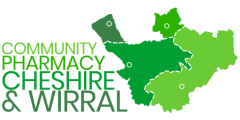Primary Care Networks
What are Primary Care Networks?
Primary care networks (PCNs) are a new way of funding primary care, creating funding streams for a group of primary care clinicians looking after a population of 30-50,000 people. This was highlighted in the new GP contract and all GP surgeries are grouping together to create networks that make some geographical sense. whilst encompassing the 30-50,000 people requirement. The new GP contract provides new funding directly to PCNs (not CCGs as previous funding) to employ a range of new people, including pharmacists, physician associates, physiotherapists, community paramedics and social prescribers.
So what does this mean for Community Pharmacy?
Collaboration with non-GP providers, such as community pharmacies, will be a requirement for PCNs from April 2020. Our local NHS England team are really clear that community pharmacy has a huge role to play in the success of PCNs. What it does mean, is that some of the activities we do will change, and each pharmacy will need to work with their own local PCN to meet the local needs. The needs of the center of Warrington and Warrington South are different, with different populations so even though they are close geographically you may be doing different things to your colleagues.
This means we need to stat thinking collectively as a group of clinicians and teams providing for our local populations. We need to build on our links between our nearest community pharmacies and all the other primary care providers – particularly your local GP(s).
So what things might Community Pharmacy do in a PCN?
Urgent care and minor illness
- Community pharmacies’ contribution in supporting demand for urgent care through the Community Pharmacist Consultation Service (CPCS)
Prevention and public health
- Working closely with GPs, the role of community pharmacy in proactive care, prevention of ill health, early diagnosis and identifying people at risk (eg of hypertension) might be offered within the network setting.
- Building on the Healthy Living Pharmacy (HLP) initiative, community pharmacies may provide a role in network leadership for public health campaigns.
An increased clinical role
- Increased engagement with the new clinical pharmacist team based in PCNs. This will include working with social prescribing link workers and the wider clinical team based within primary care networks.
- As more community pharmacies get involved with local PCNs, they will be well placed to help deliver against the service specifications in the GP contract in
areas such as CVD detection and around awareness of cancer symptoms and promoting early diagnosis.
Medicines safety and optimisation
- The NHS needs the clinical skills of community pharmacy professionals to achieve its vision for better safety, outcomes and value from medicines. Community pharmacists will work alongside their counterparts in the PCN such as clinical pharmacists and hospital-based colleagues to improve medicines safety and to support adherence.
Great – where do I start?
- Make sure you know who your likely PCNs partners are going to be? Who are your local GPs? What about local pharmacies? Introduce yourself – and start building/strengthening working relationships.
- Make sure you are consistently delivering local services – every day, all day. Demonstrate what you can do, it will make doing new things much easier.
- Look at NUMSAS and as more information is available DMIRs (we are piloting GP-DMIRs locally). Both these services will be really important. Need any help getting signed up? Contact us.
- Look at the locality information for your pharmacy as it becomes available – we will be publishing more and more on our site.
What are the LPC doing?
At the moment a lot of the work is exploring and fact-finding. PCNs are only just agreed, and no-one really knows what the main priorities will be. The LPC is working to develop tools to help you communicate within your PCN groupings, build some governance tools to reassure you that everything will be done openly and transparently and we are working with our current partners in the CCG, NHSE and other partner organisations to make sure community pharmacy’s voice is heard loudly!
If you want some specific detail about PCNs, we can come and visit you and answer all your questions. Just ask.
We’re planning some face-to-face events for after the summer holidays and we hope to have plenty of information then.
